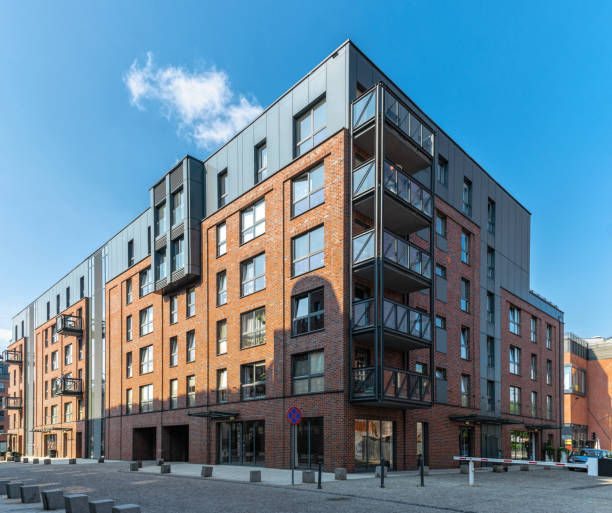
When there are not enough condos available, both the process of searching and getting mortgage approval become tough. Those interested in buying a home must act fast, consider their options carefully and get the money they need. Whether you’re an investor or a homebuyer, understanding financing condo inventory in a competitive market is key.
So, this guide will introduce techniques, important tips and main steps to assist you when the condo market is less flexible.
Why Is Condo Inventory Tight Right Now?
So, before diving into financing, let’s look at why condo inventory might be limited:
- High Demand, Low Supply: More people want condos in urban and coastal areas like Tampa, Florida. But fewer new projects are being built.
- Economic Uncertainty: Developers are cautious. Rising interest rates and building costs slow down construction.
- Investor Activity: Investors often snap up available units quickly, reducing options for individual buyers.
Now that we understand the problem, let’s explore how to navigate it—step by step.
1. Get Pre-Approved Before You Shop
If there is not much inventory, every second counts. You cannot allow your work to be delayed.
The reason this matters:
Being pre-approved for a loan can let the seller know you are willing to purchase. It enables you to review your budget before deciding on a price.
Pro Tip:
Use the services of a direct private lender like Loan Locker in Tampa. They work quickly and provide flexible methods of financing, unlike conventional banks.
2. Understand What Lenders Look For When Financing Condo Inventory
Financing condo inventory isn’t always like financing a single-family home. Lenders may have special rules for condos, such as:
- The number of units owned by investors
- The percentage of units that are rented
- The building’s financial reserves and insurance
Quick Tip:
Ask your lender upfront about condo-specific loan requirements. This can prevent last-minute surprises.
3. Choose the Right Type of Financing Condo Inventory
There are several ways to finance a condo. Each has pros and cons depending on your timeline and goals.
| Loan Type | Best For | Pros | Cons |
| Conventional Loan | Primary residences | Lower interest rates | Longer approval times |
| FHA/VA Loans | First-time buyers | Low down payment | Strict condo approval requirements |
| Portfolio Loans | Non-warrantable condos | More flexible | May have higher rates |
| Private Loans | Investors or fast closers | Speed, less red tape | May cost more in interest or fees |
Loan Locker specializes in private loans, which are ideal when you need fast, reliable funding and don’t want to jump through hoops.
4. Act Fast—But Don’t Skip Due Diligence
In a tight market, condos can go under contract in hours. But that doesn’t mean you should rush blindly.
So, here’s what to check before making an offer:
- Review the condo association’s financials
- Confirm the property meets your lender’s criteria
- Understand HOA fees and restrictions
Even though speed is important, due diligence can save you from a bad investment.
5. Build a Strong Financing Condo Inventory Team
Get help from people who care for you. Understanding the condo market, you will need a reliable group. So, that means:
- Having a reliable real estate investment agent
- An individual such as a mortgage broker or lender, who has experience
- An agile title company
If everyone comes together, everything proceeds more easily and the process can wrap up more quickly.
Tip:
Look for experts who understand the local condo market in Florida. The company’s local knowledge makes Loan Locker the ideal guide for those in Tampa.
6. Consider Off-Market Opportunities
Inventory may be tight on the MLS, but that doesn’t mean there are no condos available.
Try these options:
- Work with agents who know about upcoming listings
- Network with condo owners directly
- Look for properties that recently fell out of contract
With creative thinking and persistence, you can find hidden gems others might miss.
7. Use Financing as a Competitive Advantage
In a hot market, sellers favor buyers who are ready to close quickly. Here’s how financing helps:
- Offer a fast closing timeline
- Provide proof of funds or pre-approval
- Avoid contingencies when possible
Private lenders like Loan Locker offer speed and flexibility, giving you a major edge over buyers who rely on traditional banks.
8. Know the Risks of Overpaying
Sometimes buyers feel pressured to offer above the asking price. While this might win the deal, it’s risky.
Things to consider:
- Appraisals may come in lower than your offer
- You might have to cover the difference in cash
- You could be underwater if market values drop
Solution:
Know your numbers and stick to your budget. A smart financing plan keeps you from making emotional decisions.
9. Understand “Non-Warrantable” Condos
Some condos are considered “non-warrantable,” meaning they don’t meet conventional lending standards. Reasons include:
- Too many units are rented
- The building has ongoing litigation
- One person owns multiple units
These can still be great buys—but you’ll need alternative financing.
Private lenders like Loan Locker specialize in non-warrantable condo loans, giving you more flexibility when banks say no.
10. Stay Flexible and Open-Minded
Finally, be flexible. You may not get your first choice. But staying open to different neighborhoods, buildings, or unit styles can increase your chances.
Tips to stay flexible:
- Expand your search radius
- Consider smaller units or fixer-uppers
- Adjust your must-have list
Remember, it’s about finding the right deal—not just any deal.
FAQs About Financing Condo Inventory
1. What is the biggest challenge in financing condo inventory today?
The most significant issue is there being not enough funds available and tough lending guidelines. Since many condos don’t meet the standards set by banks, getting a loan from a private lender is often the only option.
2. Why are private lenders better for tight condo markets?
Private lenders offer faster approval, flexible terms, and don’t rely on cookie-cutter underwriting standards. They can help you close quickly when time is limited.
3. Can I finance a condo with bad credit?
Yes, even so, options are not as plentiful. You could still rely on a private lender if you have a good amount of money to put up and a solid plan for your investment.
4. How much down payment do I need for a condo?
Traditional loans may require 10–20%, but private lenders might accept more flexible terms depending on the deal.
5. What is a non-warrantable condo?
Most of the time, a non-warrantable condo fails to meet standard loan regulations because of low occupancy rates, legal issues or financial problems in the building.
6. Should I wait until inventory improves to buy?
Not necessarily. You can still take advantage of great opportunities if you use an appropriate financing method, even in tough times.
Conclusion: Take Charge of Your Condo Financing Strategy
Navigating financing condo inventory when the market is tight isn’t easy—but it’s possible. If you act swiftly, go with the right finance providers and keep yourself informed, you still might find a great deal.
Here at Loan Locker in Tampa, Florida, we offer assistance with refinancing your loan. As we have the funds at our disposal, we provide you with quick and trustworthy financing for your needs. An expert from the team can assist you, whether you need help as a first-time buyer or as an investor.
Also, learn about The Role of Fintech in Real Estate Financing.

